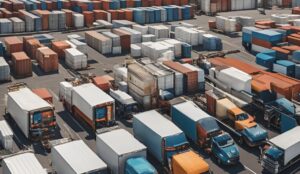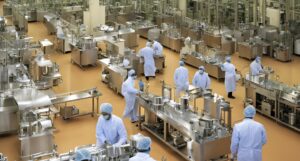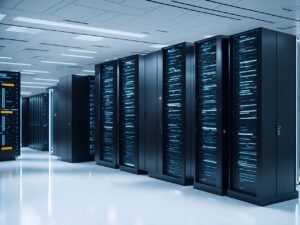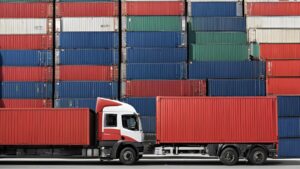Climate change poses an existential threat to the resilience and prosperity of the food and beverage industry. Effective climate action has become pivotal for sustainable procurement in the food & beverage industry. This is with rising temperatures and extreme weather disrupting global agricultural production. Simultaneously, evolving stakeholder pressures around sustainable and ethical corporate conduct are necessitating the transformation. This is because outdated business models are not fit for the 21st century.
Furthermore, several incidents linking the industry to tropical deforestation and human rights abuses through complex ingredient supply chains have highlighted the need for radical transparency. However, this also hands progressive companies an unprecedented opportunity to demonstrate leadership. This is by championing innovations and best practices. These will create secure, resilient, and equitable net-zero supply networks.
The critical roles that traceability, engagement, and collaboration must play in enabling the industry’s sustainable future will be on the agenda at the upcoming Net Zero Food & Beverage Forum in Berlin, Germany scheduled for 1-2 February 2024. So, let us go deeper into sustainable procurement in the food & beverage industry in this article and know more about the forum as to how it can provide you value.
Rising stakeholder concerns around supply chain impacts
In recent years, civil society organizations and media investigations have spotlighted links between industrial agriculture and climate breakdown. This is through extensive deforestation and biodiversity declines across vital landscapes. It includes the Amazon and Southeast Asian rainforests.
The rapid expansion of commodity crops has fueled the destruction of carbon-rich forests. They act as essential buffers against rising temperatures when left intact. Moreover, rampant land-use change has also displaced rural and indigenous communities. This is from their ancestral grounds while often enabling exploitation through complex international supply structures.
Furthermore, key globally traded ingredients like palm oil, soy, cocoa, and other raw materials end up in countless everyday products. It handles the downstream food and beverage industry’s unprecedented influence to address these pressing issues.
Sustainable procurement: Progress made with voluntary sustainability initiatives
In response to rising public concern around supply chain impacts, many companies have made voluntary commitments. This is to eliminate deforestation and human rights abuses linked to their sourcing. Additionally, the stakeholders put forward specific time-bound targets to achieve 100% certified sustainable procurement. This is for key commodities prone to environmental and social risks during production. It includes cocoa, timber, rubber, cattle, and more.
Indicators also suggest the proliferation of corporate zero-deforestation pledges. Moreover, the increasing uptake of sustainability certifications relating to sustainable procurement in the food & beverage industry has made inroads. This is when backed by genuine ambition to balance commercial and planetary health. Moreover, third-party assurance schemes have gained traction. It includes the Roundtable on Sustainable Palm Oil (RSPO).
So, around 40% of globally traded palm oil is now certified as deforestation-free. It also supports improved farmer livelihoods. Moreover, some consumer goods leaders have announced full traceability back to plantations. This is with verified no deforestation and ethical labor policies now in place for sustainable procurement in the food & beverage industry.
But there’s still work to be done to fix ongoing problems of sustainable procurement in the food & beverage industry. Some audits and monitoring are not consistent. Moreover, there are weaknesses in oversight that allow unwanted trading. This happens when products that aren’t certified manage to get into supply chains.
It should only have certified goods. This is mainly because there’s not enough control over where they come from. Current sustainability plans are helpful. However, making things strong and reliable on a large scale requires finding new solutions. These long-lasting problems can only be solved through innovation.
The spotlight on policy and consistent standards
Governments are gearing up to regulate resilient net-zero economies. It is in recognition of the links between climate breakdown, ecological decline, and social injustice. This is by enforcing ethical business norms across high-impact sectors like food and agriculture for sustainable procurement.
Scientists also underscore that avoiding irreversible planetary tipping points now requires urgent mitigation. This is of environmental and human rights harm across globalized supply chains through binding transparency and due diligence.
Moreover, national legislators are responding by pioneering compliance frameworks for sustainable procurement in the food & beverage industry. This is to incentivize innovation for the common good. For instance, France’s duty of vigilance legislation compels large companies across sectors. This is to identify and address supply chain risks through detailed public reporting and mitigation plans.
So, this regulatory blueprint is informing policy consultations across Europe considering similar mandatory corporate accountability laws. Moreover, many campaigners argue such cross-sectoral regulation should specifically target the influential food and beverage industry. Additionally, it suggests embedding legal duties to map and monitor sustainability credentials across end-to-end supply networks.
As intergovernmental commitment mounts to uphold the Paris Climate Agreement and post-2020 biodiversity protection goals, regulatory measures seem inevitable. This is unless we achieve rapid collective progress through voluntary action, ethical transparency will not be realized.
The Net Zero Food & Beverage Forum 2024 – An unprecedented watershed dialogue
The invitation-only Net Zero Food & Beverage Forum in Berlin, Germany 2024 will provide an opportune platform to advance industry priorities and solutions for sustainable procurement in the food & beverage industry. This is to build transparent, equitable, and resilient net-zero supply chains.
So, through panels, case studies, and immersive sessions, the event will align stakeholders across food and beverage value chains. This is to drive progress across interconnected workstreams. Among the plethora of topics, some of the most impactful ones will be the following for you:
Sustainable Procurement of Raw Materials
The Net Zero Food & Beverage Forum is poised to advance action on the imperative. This is to expand procurement of ethically and ecologically cultivated commodities. Detailing best practices drives engagement across first-mile producers to second-mile manufacturers. This is for incentivizing sustainable agriculture without marginalizing livelihoods.
Decarbonization Strategies
Discussions will focus on executable roadmaps for achieving verified net zero emissions across facilities and ingredient supply chains. So, ambitious reduction targets and practical steps to monitor progress will be pivotal. This is to demonstrate genuine sustainability commitment.
Optimizing Manufacturing Processes
The manufacturing modernization opportunities the Forum offers span pivotal areas. It includes energy-efficient HVACR upgrades, data-enabled water stewardship, and also integration of renewables. It is underscored earlier as enabling resilience. So, first-hand insights will be provided into replicable nature-positive facility designs. These also help manufacturers extract dual commercial and environmental value.
The Net Zero Food & Beverage Forum can spur stakeholders towards ethical responsibility for sustainable procurement in the food & beverage industry. This is by facilitating collaborative action and elucidating interlinkages between ecological, social, and economic dimensions of sustainability.
To sum up
The upcoming Net Zero Food & Beverage Forum is strategically positioned to accelerate industry momentum in sustainable procurement in the food & beverage industry. Right now, we’re at a critical point where we need to act quickly to address climate issues. The event focuses on changing complicated supply networks, especially in the way we produce and distribute food globally, which is causing social problems and harming the environment.
The forum brings together influential decision-makers who can make a real difference. They’ll discuss partnerships and new ideas in Berlin, creating a starting point to promote models that can be copied to make farming more transparent, protect the environment, and ensure people’s rights are respected worldwide.
Companies that are looking to the future have a great chance to lead. They can use their power to work together and influence what gets bought and sold. As a result, it helps to make markets better for responsibly produced goods. This sends a clear message that taking care of the environment and being socially responsible are necessary for successful businesses in the 21st century.
By working together before they compete and using their influence as major buyers, the participants in the forum can lead the way toward creating sustainable and ethical value chains that aim for net-zero impact. So, it’s an opportunity you don’t want to miss!





